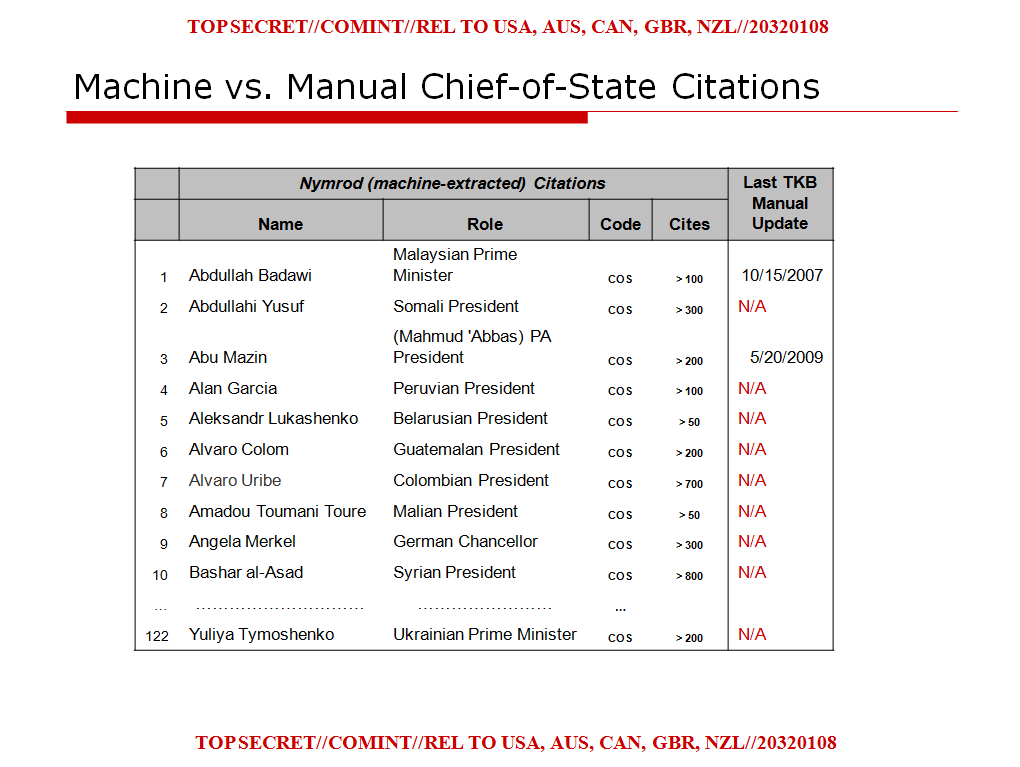A few months ago, the archives of Edward Snowden have revealed that the NSA and the US government spied on Angela Merkel. It seems, however, that Angela Merkel was not the only leader attended by the US secret service.
According to a recent publication Der Spiegel and Intercept, only 2009 the NSA and the British GCHQ were watching 122 foreign leaders as a whole.
The list begins alphabetically with Abdullah Badawi, Prime Minister of Malaysia, and continues with Abdullahi Yusuf President of Somalia. The leaders of Peru, Belarus, Guatemala, Colombia, Syria are all on the list, along with Angela Merkel and Yulia Tymoshenko, former Prime Minister of Ukraine.
The list is long, but the leaked document shows only 11 names.
The Secret Service had set up a system search το οποίο είχε ονομάσει “Nymrod.” Το σύστημα αυτό παρείχε information from the surveillance carried out on the names contained in the list of foreign leaders.
The service from the Nymrod system could find information "about targets that would otherwise be difficult to identify." The search engine goes through secret reports based on communications that have been intercepted and stored on NSA systems.
The fact that the US intelligence service is spying on a long list of foreign leaders is no longer surprising, especially considering all the information that has been revealed over the past few months.
However, these revelations are sure to provoke reactions from the leaders who saw their names adorn the NSA list. They no longer simply suspect, but know with evidence through the intelligence service, that the US is monitoring them.






